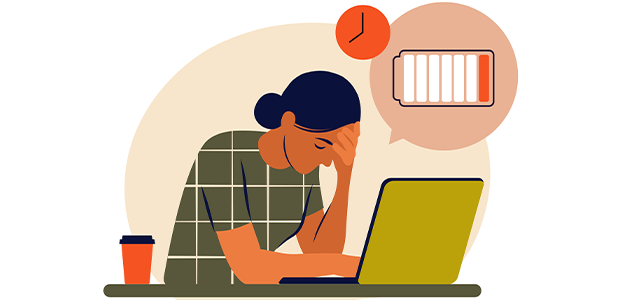
Lone worker app reveals the UK's most stressed workforces
StaySafe, a provider of lone worker safety solutions, has conducted an in-depth analysis of official data sources to identify the most stressed workforces in the UK.
By examining various factors, including average earnings, property prices, social activities, exercise, and wellbeing activities, they have uncovered valuable insights into the wellbeing of workers across different regions.
West Midlands tops the stress index
Workers in the West Midlands have emerged as the most stressed in the UK, scoring 88/120 on the stress index. This score is attributed to spending significantly less time on social activities, exercise, and personal care compared to other regions. On average, they work 32.6 hours per week, including overtime, surpassing the national average. Despite the demanding work hours, West Midlands residents manage to get nearly nine hours of sleep per night. However, they engage in less unpaid household work, such as adult care, than the average person.
Welsh workers overload on overtime
Wales secures the second position on the stress index with a score of 73/120. Despite the stunning landscapes and ample opportunities for exercise, Welsh residents face high levels of stress due to extensive working hours and unpaid household tasks. They lead in the amount of overtime worked, totalling 52 hours per year, and unpaid household work. Despite the extra effort, their weekly salary is lower than the national average, leaving them with less time for entertainment and socialising.
Yorkshire and the Humber ranks third
With a score of 72/120, Yorkshire and the Humber rounds off the top three. Residents in this region work higher-than-average overtime, nearly 47 hours per year, and experience lower-than-average pay. The affordability of property may provide some relief, with the average property price at £237,547 and monthly rents at £995.
Scotland emerges as the least stressed
It’s good news for the Scots. Scottish workers stand out as the least stressed in the UK, with a score of 48/120. Their ability to balance work and personal life is evident in fewer working hours, allowing more time for socialising and entertainment. However, they do undertake a higher-than-average amount of unpaid household work; Scottish residents spend just over two and a half hours per week on such tasks and, consequently, engage in less personal care than their counterparts.
South West boasts a healthier work-life
Workers in the South West have the fewest working hours in the UK, totalling 32.8 hours per week, earning them a score of 60/120. This region prioritises exercise, sports, and wellness activities, contributing to a healthier work-life balance. However, higher property prices and increased hours on unpaid household tasks pose challenges for residents.
North East strives for balance
With a score of 61/120, it’s the North East that positions itself just above the South West. Lower property prices and fewer hours spent on unpaid household tasks contribute to a better work-life balance, even with the lowest average household income in the country.
Richard Bedworth, VP Sales, at StaySafe: said, “Modern life is stressful, and unfortunately, worries from work and life can come together and exacerbate stress levels further. Money worries, overworking, and less time spent socialising and on personal care have all been proven to increase stress levels, and when added to everyday work worries can heighten stress levels across the board.
“We know from research that poor workplace safety and security are contributing factors to negative mental health, so supporting employees at work to feel safe and secure can have a huge impact on their working life. Likewise, introducing flexible working, monitoring unplanned/unpaid overtime, and having regular check-ins with staff can help employees balance their work and home commitments, which has been proven to have a positive effect on stress levels and overall mental health. Employers must know they have a duty of care to ensure their workers are safe at all times, specifically if they are working alone and in high-risk situations.”
The StaySafe lone worker app boasts a range of features to put minds at rest, including location monitoring, safety notifications, a panic button, fall detection, and many more.

